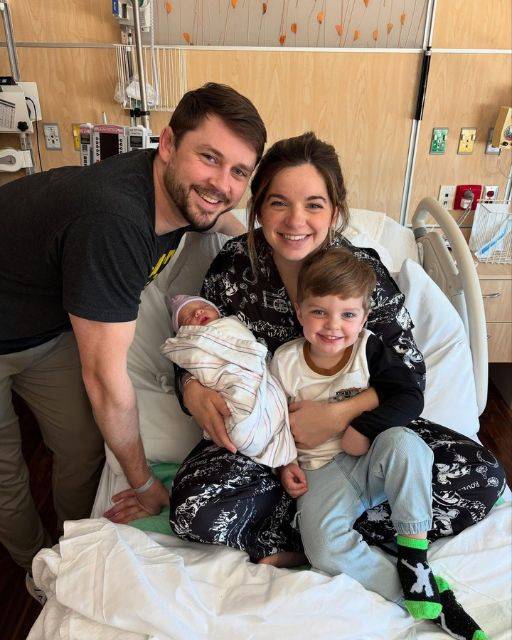“It’s not what you think. Things got complicated last year… after we lost the baby. I didn’t know how to talk to you. Alana just listened.”
The nurse quietly stepped out, sensing the shift in the room.
His words echoed in my mind: just listened. Yet her name was written where mine should have been.
That night at home, I couldn’t stop thinking about it. No dramatic secrets, no obvious betrayal—but something had changed. During one of the hardest times in our lives, he’d leaned on someone else instead of me.
Days later, once the house was quiet and the kids were asleep, I asked the question I’d been holding in:
“Did you have an emotional connection with her?”
He paused, then nodded. “Yes. But it was never more than that. I just felt… alone. And seen.”
His honesty was painful, but so was mine.
“I shut you out,” I admitted. “I was hurting, and I thought I was protecting myself by staying silent.”
We agreed to try counseling—not because we had all the answers, but because we owed our family the effort.
Therapy helped us understand what had been buried under the weight of grief and fear. He explained that when I went into labor, he panicked. Old fears resurfaced. He reached out to someone familiar in a moment of uncertainty. That name ended up on the form by mistake—but the deeper truth was already between us.
Our therapist asked me one day, “Do you feel emotionally safe now?”
I didn’t know how to answer.
In the weeks that followed, he began showing up in small, thoughtful ways—writing notes, taking night feedings, asking how I was. It wasn’t perfect, but it was honest. And slowly, the numbness began to lift.
Then I found a notebook in a drawer. Inside were handwritten letters—to me.
“I miss us before we broke,” one read. “I’m not chasing her. I’m trying to find my way back to you.”
I sat on the floor with that journal, tears finally falling. Something in me softened.
I took a short trip to clear my head, leaving the kids with my sister. By the sea, a kind stranger asked gently, “Are you running from something—or toward something?”
“Both,” I answered.
She nodded. “Truth usually lives somewhere in the middle.”
When I came home, we had a real conversation—not to defend, but to connect. I realized I still loved him. That love hadn’t vanished. It had just been buried.
We chose to try again—not with big promises, but small steps: evening walks, open conversations, and a shared journal for the words we couldn’t always speak out loud.
Months later, I received a message from Alana. A brief apology. A quiet exit. And somehow, with those few words, the weight lifted just enough.
On our anniversary, he took me back to the beach where I had first considered walking away. As we walked barefoot on the sand, he said, “Thank you for giving us another chance.”
I looked at him—not perfect, but present—and replied, “Thank you for showing up.”
A few weeks later, our son brought home a school project titled The Family That Almost Broke but Didn’t. He’d drawn a stormy house, its windows cracked, but inside, stick figures holding hands tightly. I cried, realizing how much children feel, even when we think they don’t.
We’re not flawless. We still have disagreements. But now, we meet those moments with honesty and effort. When our baby took his first steps, he wobbled toward my husband—and was caught without hesitation.
Love isn’t defined by ease. It’s defined by what survives the storms.
We chose to rebuild. And in doing so, discovered a deeper strength than we knew we had.

